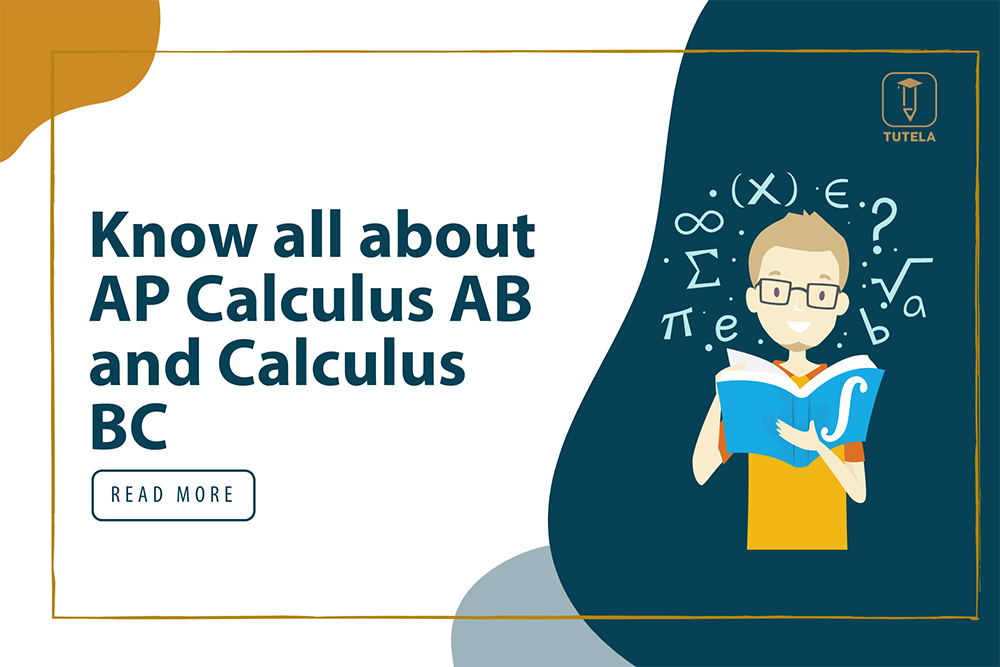
AP exams allow you to pursue college-level studies while you’re still in high school. It also provides you with the opportunity to earn college credits, advance placement or both while you’re still in high school. It is advisable to take the SAT or ACT, followed by SAT Subject Tests and then APs. You can start preparing for the APs as early as the 9th grade.
Due to COVID-19, College Board has taken some measures to ensure students don’t miss their APs this year. There’s a lot of hard work that goes into preparing for the APs and if the exams are cancelled then it’s a huge discouragement for students. Hence, keeping the welfare of students in mind College Board has made certain amends with respect to the AP exams.
Note – These amendments are for the year 2019-20 only.
The content that will be covered in Calculus AB and Calculus BC for the exam will be –
*Exam question types and Exam dates for both courses will be available on the website on 3rd April.
Note: The following information is not in relation to the amendments mentioned above made by the college board specifically for this year.
AP Calculus AB and AP Calculus BC – AP Calculus AB and AP Calculus BC focus on students’ understanding of calculus concepts and provide experience with methods and applications.
Note: You may not take both AP Calculus AB and Calculus BC Exams within the same year.
AP Calculus AB
| What is it? | Major Topics | Prerequisites | Exam Structure |
|---|---|---|---|
| It is a course based on Integral and Differential Calculus. It is an introductory course of 1 year. | 1. Limits and Continuity 2. Differentiation: Definition and Fundamental Properties 3. Differentiation: Composite, Implicit and Inverse Functions 4. Contextual Applications of Differentiation 5. Analytical Applications of Differentiation 6. Integration and Accumulation of Change 7. Differential Equations 8. Applications of Integration |
1. Before studying calculus, all students should complete the equivalent of four years of secondary mathematics designed for college-bound students in which they study algebra, geometry, trigonometry, analytic geometry, and elementary functions. 2. You should have prior knowledge of properties of linear, polynomial, rational, trigonometric, inverse trigonometric, and piecewise-defined functions and know-how to graph these functions and solve equations involving them. |
The exam Duration for Calculus AB is 3 hours and 15mins. The exam is divided into 2 sections. Section 1: 45 Multiple choice questions of 1hr 45mins. 50% of the score. Part A: Graphing calculator not permitted (33.3% of score) Part B: Graphing calculator required for some questions (16.7% of score) Section 2: Free response having 6 questions of 1hr 30mins. 50% of the score. Part A: 2 problems | Graphing calculator required (16.7% of score) Part B: 4 problems | Graphing calculator not permitted (33.3% of score) |
AP Calculus BC
| What is it? | Major Topics | Prerequisites | Exam Structure |
|---|---|---|---|
| It is a course based on calculus and the subsequent single-variable calculus. It is an introductory course of 1 year. | 1. Limits and Continuity 2. Differentiation: Definition and Fundamental Properties 3. Differentiation: Composite, Implicit, and Inverse Functions 4. Contextual Applications of Differentiation 5. Analytical Applications of Differentiation 6. Integration and Accumulation of Change 7. Differential Equations 8. Applications of Integration 9. Parametric Equations, Polar Coordinates, and Vector-Valued Functions 10. Infinite Sequences and Series |
1. Before studying calculus, all students should complete the equivalent of four years of secondary mathematics designed for college-bound students in which they study algebra, geometry, trigonometry, analytic geometry, and elementary functions. 2. You should have prior knowledge of properties of linear, polynomial, rational, trigonometric, inverse trigonometric, and piecewise-defined functions and know-how to graph these functions and solve equations involving them. |
The exam Duration for Calculus AB is 3 hours and 15mins. The exam is divided into 2 sections. Section 1: 45 Multiple choice questions of 1hr 45mins. 50% of the score. Part A: Graphing calculator not permitted (33.3% of score) Part B: Graphing calculator required for some questions (16.7% of score) Section 2: Free response having 6 questions of 1hr 30mins. 50% of the score. Part A: 2 problems | Graphing calculator required (16.7% of score) Part B: 4 problems | Graphing calculator not permitted (33.3% of score) |
When should you take AP Calculus AB or BC?